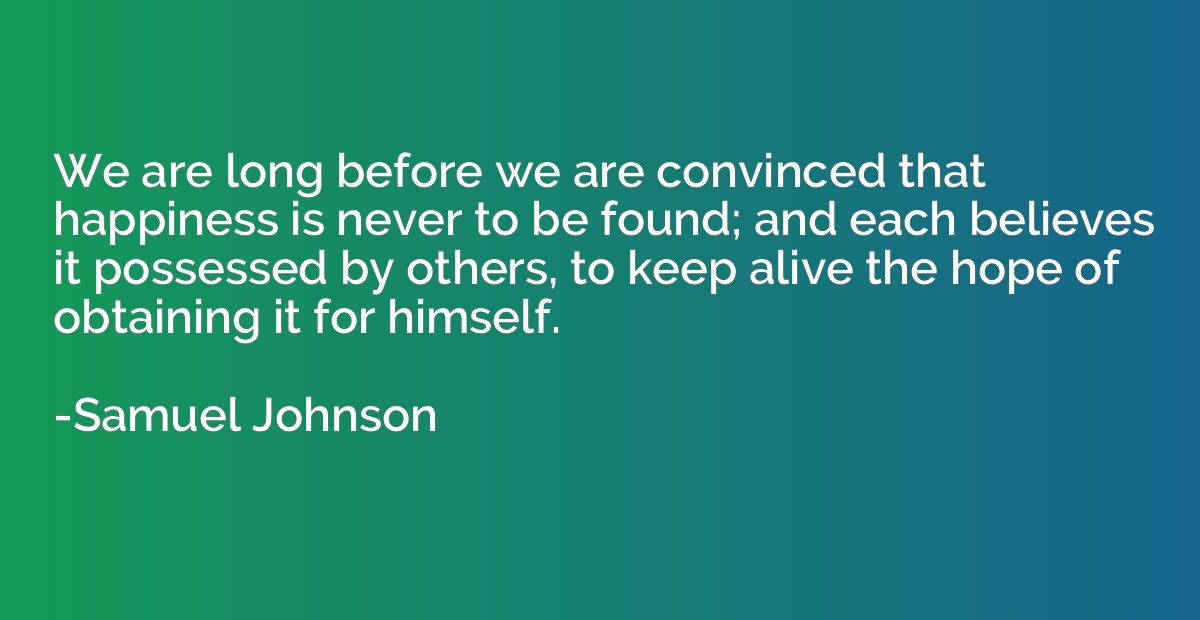Quote by Samuel Johnson
We are long before we are convinced that happiness is never to be found; and each believes it possessed by others, to keep alive the hope of obtaining it for himself.

Summary
This quote suggests that people often struggle to find happiness and convince themselves that it may be unattainable. However, they also believe that others possess happiness, as it helps them maintain the hope that they too can achieve it. It implies that the perception of happiness in others becomes a source of inspiration and motivation for individuals to strive for their own contentment, persisting in their pursuit despite any initial skepticism.














